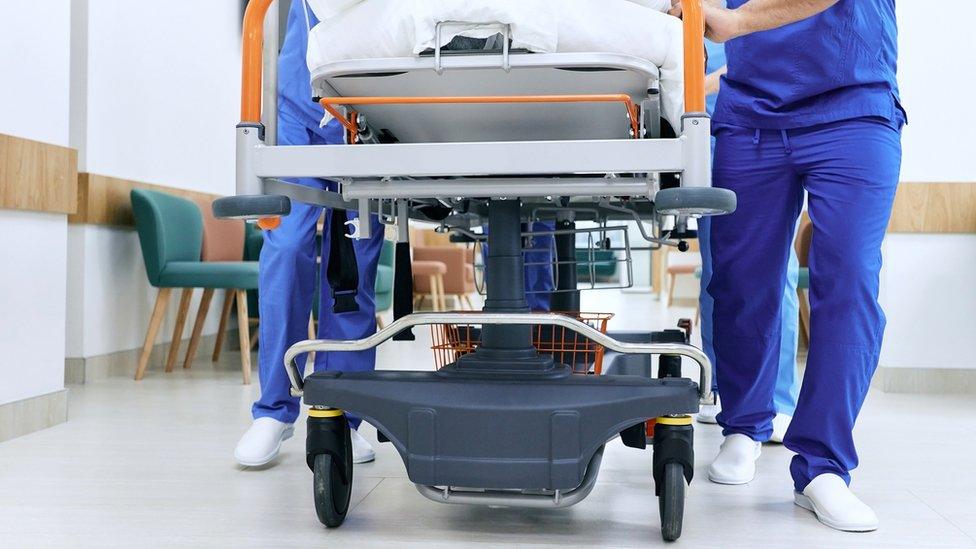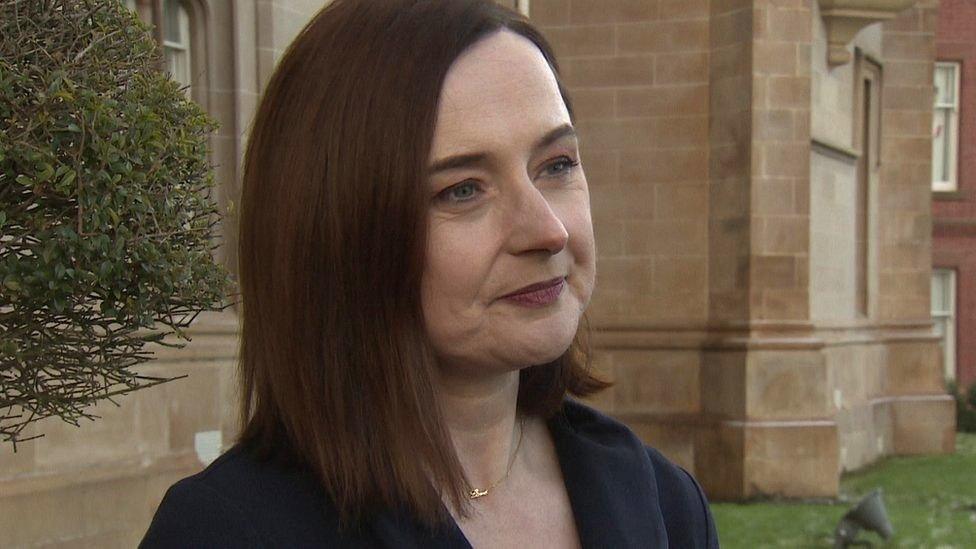Mental health: Patient spends at least seven nights in A&E
- Published

The patient has been cared for in the emergency department
A patient has spent at least seven nights in the Ulster Hospital emergency department, BBC News NI understands.
The patient, who has mental health issues, is being cared for in a private cubicle.
This is because there are no available beds in any of Northern Ireland's dedicated mental health units.
The South Eastern Health Trust said it was "working beyond capacity, including in mental health, to manage hospital admissions".
It added that it was "working closely with our regional colleagues to respond to the demands on in-patient services".
A report published this week by the NI Audit Office on mental health services, external said the successful implementation of Northern Ireland's 10-year mental health strategy was "at risk without sustained, additional investment".
It highlighted the prevalence of mental health problems in Northern Ireland, which are approximately 25% higher than in England.
One in five adults in Northern Ireland show signs of mental health problems, with an estimated one in eight young people experiencing anxiety and depression.
Despite the higher prevalence levels, according to the report, funding for mental health in Northern Ireland is lower than elsewhere in the UK and in Ireland.
The report estimated that bringing funding levels into line with elsewhere in the UK would require additional funding, which could be as much as £190m a year.
The report also said the mental health budget set at 5.7% of the overall health budget - down from more than 6% - was well below the World Health Organisation's recommendation of 10%.
It highlighted that almost half of all people on waiting lists waited longer than the nine or 13-week target.
Routine referrals should receive an appointment within nine weeks, or 13 weeks in the case of psychological therapies.
Northern Ireland's mental health champion has said health providers are struggling to meet the demand of people in "significant immediate distress".
The number of people on mental health waiting lists for more than nine weeks has grown significantly since 2018.

Prof Siobhan O'Neill said more staff were needed
Prof Siobhan O'Neill said more psychologists and more psychiatrists were needed.
She added that service providers had told her they regularly did not have the staff or adequate resources to provide efficient care.
The NI Audit Office report said that it welcomed the publication of the overarching mental health strategy 2021-31 which would cost around £1.2 billion to implement reforms.
However, it said that funding for the reforms was "not available from within existing departmental resources and would require additional funds to be secured by the executive".
Auditor General Dorinnia Carville said that as well as the human cost, the financial impact to society due to care, treatment and lost productivity was conservatively estimated at £3.4bn a year.
She added there were therefore "significant benefits to be derived from improving mental health here".
Related topics
- Published15 February 2023
